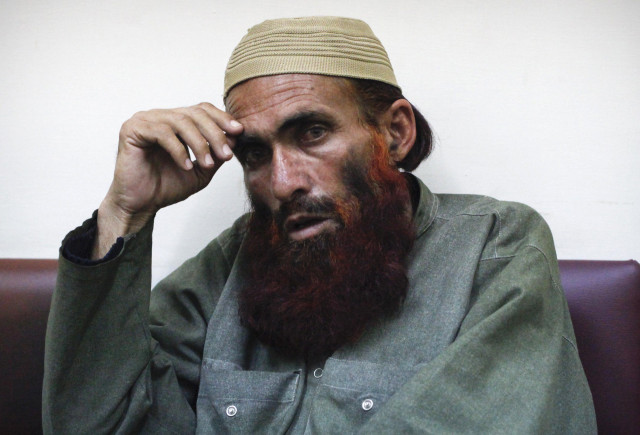Drones hurt government's bid to win hearts and minds
Resham Khan, a tribesman, lost 15 members of his family in what he said was a US drone strike on a funeral procession.

Pakistan's government was making some progress winning hearts and minds in North Waziristan, a stronghold of al Qaeda and Taliban militants.
It upgraded a school and built a new road, lifting the spirits of people like shepherd Resham Khan, a victim of decades of neglect of the forbidding mountain region in the northwest. Then, last June, 15 members of his extended family were blown to pieces during a funeral procession in his village.
Khan, who was nearby and heard the explosion, alleges the mourners were targeted by pilotless US drone aircraft missiles. He stares into the distance blankly when asked to describe that day.
His brother, Mulaqat, has to recount the tragedy because he is still too traumatised, to speak at length. He sits by Khan's side in a psychiatric section of an Islamabad hospital where he is being treated with antidepressant and anti-psychotic medicines.
Pakistan needs to win support in key battlegrounds like North Waziristan along the Afghan border, a global hub for militants determined to destabilise the government and help defeat US-led Nato forces in Afghanistan.
But the strikes undermine public support.
"If you expect them to love the government, you would be foolish to think so," said Khan's psychiatrist, Rizwan Taj, who says his patient has made great progress since he was brought to the hospital on a stretcher, in a stupor, four weeks ago.
His grief reflects the price ordinary Pakistanis are paying for the relentless US drone campaign on the Afghan border, which has been stepped up under the Obama administration as it prepares to draw down troops in the 10-year war in Afghanistan.
The air raids also go to the heart of the resentment that Pakistanis feel against the United States, seeing them as an assault on the nation's sovereignty. Drone strikes have been a major source of friction between the United States and Pakistan.
Tensions between the allies have heightened further over the case of Raymond Davis, a US consular employee who shot dead two Pakistanis last month in the eastern city of Lahore in what he said was an attempted robbery. The United States says Davis should be released from jail because he has diplomatic immunity. Pakistan says the courts should decide his fate, and many see it as another case of the Americans refusing to subject themselves to Pakistan laws.
The United States still doesn't acknowledge the drone campaign, so American officials decline to confirm specific incidents, underscoring the sensitivities on ties with Pakistan.
But they do say the attacks are highly effective. Drone strikes have killed high-value al Qaeda and Taliban figures. But these victories for Washington and Islamabad often cause devastation for locals like Khan.
And end to prayers
Shortly after the strike, the 52-year-old father of six sunk into a deep depression and lost alarming amounts of weight. Then he started imagining things.
He told relatives that they should not eat or drink anything because the world's food and water supplies would soon run out. His brother decided to admit him to hospital when Resham, a pious Muslim, did the unthinkable.
"On the 20th of September he stopped praying. He used to pray five times a day. But after that he totally stopped," said Mulaqat, looking sadly at his brother, who was sporting a henna beard and wearing old plastic sandals. "I asked him to offer prayers and he said 'I can't. I don't have the energy'."
The numbers
The New American Foundation, which tracks drone strikes, estimates they have killed a total of 2,189 people from 2004 through January of this year. Of those, 1,754 were militants. Only 16 per cent of residents of the tribal areas think the strikes accurately target militants, 48 per cent believe they largely kill civilians and another 33 per cent feel they kill both, said a study by the think tank.
People in Khan's village staged dozens of protests urging the government to halt the drone strikes and provide compensation for deaths and property damage, said the brother. The government promised to do so, but "we don't believe their promises," he said. Khan was so emotionally paralysed by the drone incident that he stopped taking caring of his elderly mother. She contracted cholera, probably because of poor sanitation, and died. His children also suffered. They could not understand his odd behavior, and were told to stay away from him because he had caught a contagious disease.
This kind of collateral damage makes it easier for the Taliban to persuade people to take their side in the conflict, which has drained state coffers. After the Reuters interview with his brother, Khan mustered up the courage to speak briefly about the drone strike. "Stop the drone attacks. We need money. No one is helping us," he said.
A let-up in the strikes, launched by remote-control from Central Intelligence Agency headquarters in Langley, Virginia, is highly unlikely. The US believes Osama bin Laden, his deputy Ayman al Zawahri and other militants are in the northwest.













COMMENTS
Comments are moderated and generally will be posted if they are on-topic and not abusive.
For more information, please see our Comments FAQ